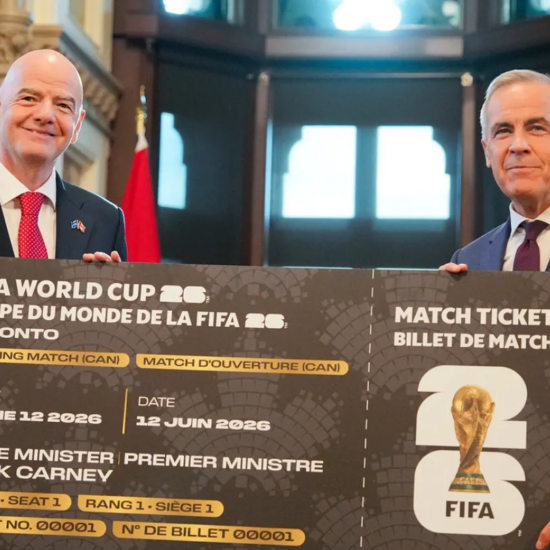
Bob Mackin
It doesn’t pack the cultural import of the live broadcast of the 1954 Tournament of Roses Parade, which introduced the world to colour television. But the translation from French into English of the key part of Quebec’s landmark inquiry on construction corruption couldn’t come at a better time.
NDP housing and gambling critic David Eby and justice critic Leonard Krog were the only two lawmakers at last October’s Transparency International-sponsored “Follow the Money” anti-corruption conference at Robson Square’s University of British Columbia campus. Organizers told me that the governing B.C. Liberals and Vision Vancouver were invited, but no one from either party showed up.
Several of the presentations noted the lack of English translation of what is officially known as “Report of the Commission of Inquiry on the Awarding and Management of Public Contracts in the Construction Industry.” Enter Eby, who commissioned the translation of volume 3: “Schemes, Causes, Consequences and Recommendations.”
The translation was published in-time for the Eby-hosted, March 21 appearance at the UBC Allard Law School by Sonia LeBel, who was lead lawyer for the Charbonneau Commission. Last month, LeBel joined the Coalition Avenir Quebec party in Quebec as its deputy chief of staff.

Sonia LeBel
Within the report, there are many lessons for British Columbians, who are grappling with the corrupting influence of unlimited political donations. The RCMP is investigating donations made to political parties via lobbyists. Eby, Krog and the NDP have vowed to ban corporate and union donations if elected on May 9. The Liberals said they will study it. The Greens say they already have stopped taking corporate and union donations.
“The Commission’s work revealed the possible existence of direct and indirect links between the payment of political contributions and the awarding of public contracts,” said the report. “Direct links were mainly observed in the context of municipal politics, and indirect links, in the context of provincial politics.”
Major engineering firms in Quebec were paying more than $100,000 a year in the mid-2000s to the party in power and contractors were paying tens of thousands of dollars a year in donations.
“Some companies circumvented the electoral law by asking their employees to make contributions, which they reimbursed through a variety of schemes (bonuses, expense accounts, salary increases). In so doing, the employees of these companies acted as straw donors. Testimony also showed that these companies simultaneously financed several political parties, among other things from fear of retaliation if an opposition party came into power. Companies also offered favours and gifts to MNAs [members of the national assembly] and ministers as part of these business strategies.”
Several business leaders told the inquiry that they were solicited by political parties that promised “an attentive ear in exchange for their contributions.”
“They also claimed that parties set fundraising targets based on their share of procurement contracts. Ministerial offices also organized paid and private meetings between business people and ministers. Funding events for the ministers of Transport and Municipal Affairs were the most popular among business leaders in the construction industry. For that reason, these ministers were often solicited by their fellow MNAs and ministers, who struggled to meet the funding targets set by their party.”
In B.C., the transport minister is Todd Stone, the co-chair of the BC Liberal re-election campaign. Municipal affairs minister Peter Fassbender is responsible for transit and taxis. Premier Christy Clark has ridiculed NDP leader John Horgan for wanting to refer the $9 billion Site C project to the B.C. Utilities Commission and for opposing the $3.5 billion replacement of the George Massey Tunnel with a bridge. Yet, Clark has resisted calls for measures to protect taxpayers from corruption.
Among the 60 Charbonneau recommendations:
- Create a provincial public procurement authority mandated to: monitor public contracts to identify malfeasance; support public contracting authorities in managing contracts; intervene with public contracting authorities when necessary.
- Improve the whistleblower protection system to ensure: anonymity for all whistleblowers, regardless of the agency to which they report; assistance to whistleblowers in their efforts; financial support, when required.
- Require all public contracting authorities to report to the Commission de la construction du Québec any situations involving intimidation or violence on worksites established for their projects.
- Create a penal offence to sanction any attempt by a bidder to communicate directly or indirectly with a member of a selection committee of a public contracting authority for purposes of influencing that individual’s decision.
- Amend the Elections Act to require that: the annual financial report of the party or authority be signed by the party leader and the highest official of each party authority in addition to the official representative; the party leader, the elected representative or the candidate sign a statement in the annual financial report and in the report on election expenses stating that:
- – the representative or official agent informed him of the financing rules;
- – he reminded his colleagues of the obligation to respect these rules;
- – he has been informed of the fundraising practices of his party and is satisfied that they comply with the law; and
- – he obtained any clarification he required from the representative or the official agent on the contents of the financial report.
- Amend electoral laws to require that authorized political entities disclose in their annual financial reports and their returns of election expenses the names of individuals who have worked as volunteers in the area of expertise for which they are usually remunerated.
- Amend the codes of ethics and professional conduct applicable to elected provincial and municipal officials and their staff to prohibit the announcement of projects, contracts or grants in the context of political fundraising events.
Read volume 3, in English, below.
Volume 3 of the Charbonneau Commission report in English by BobMackin on Scribd











